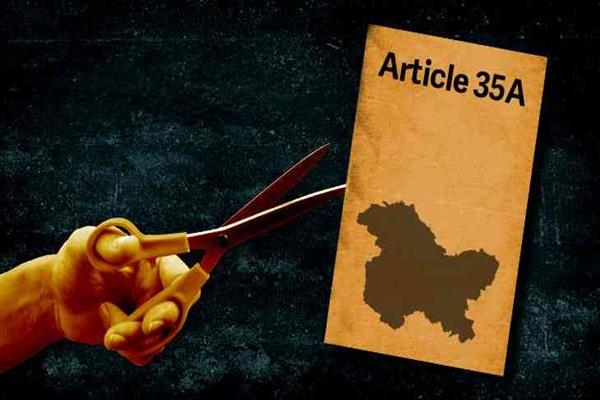SC seeks Centre, J&K's response on plea challenging Article 35A

New Delhi (IANS): The Supreme Court on Tuesday sought the Central and
Jammu and Kashmir governments' response on a plea seeking a declaration
that the Constitution's Article 35A was unconstitutional as it deprived the
generations of outside settlers in the hill state their right to property
and employment under the state government.
A bench of Chief Justice Dipak Misra, Justice A.M. Khanwilkar and Justice
D.Y. Chandrachud tagged the plea with similar petitions pending hearing.
The petitioners have contended that the President could not have amended
Article 35 by incorporating Article 35A through a presidential notification.
Article 35A bars all, other than the original inhabitants of the state,
from owning immovable property, settling, getting jobs under the state
government or availing state scholarship.
The petitioners also included some of the 272 sanitation workers who had in
1957 moved from Gurdaspur and Amritsar in Punjab to settle in Jammu to work
as sweepers in the wake of an indefinite strike by the employees of the
Jammu Municipal Corporation.
The petitioners contended that they represented the subsequent generation
of the settlers who had gone to the hill state at the instance of the J&K
government.
The petitioners, the PIL says, were born in J&K and have been permanently
residing and living in the State.
The PIL has contended that the denial of right to settle in the state and
avail facilities available to original inhabitants was violative of the
Constitution's Article 14, 15, 16, 21 and 32 as well certain clauses of
Articles 19 and 29.
"The denial of right to seek admission in state-funded higher technical
educational institutions, denial of right to get state scholarship and...
denial of opportunity of employment in the state services and public sector
undertakings and local bodies under the state government, denial of right
to acquire and hold property for the purpose of shelter and settlement and
denial of remedy of judicial review under impugned Article 35A, to the
descendents of a 272 persons... has rendered the life of each one a without
any meaning of being a human...," says the PIL.
